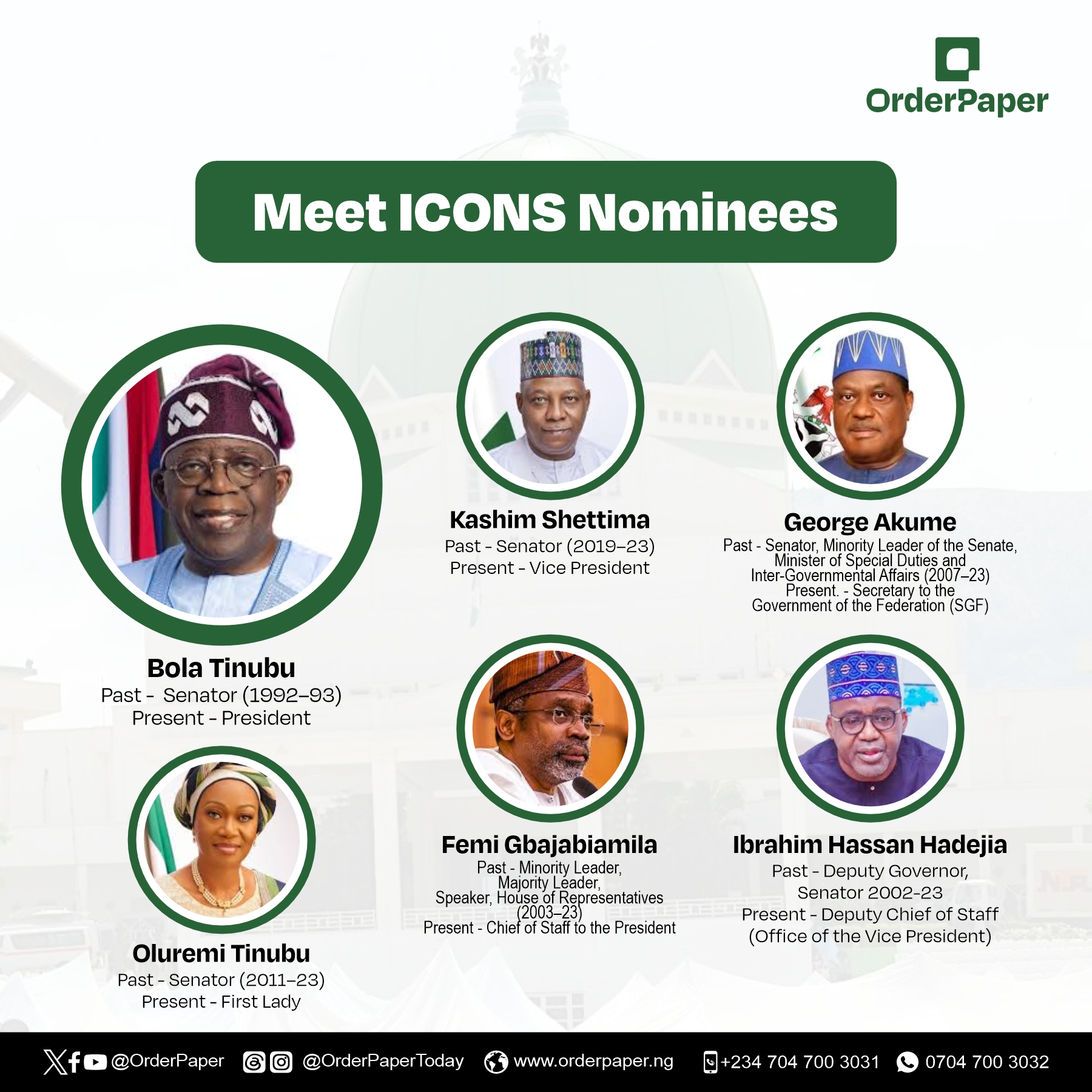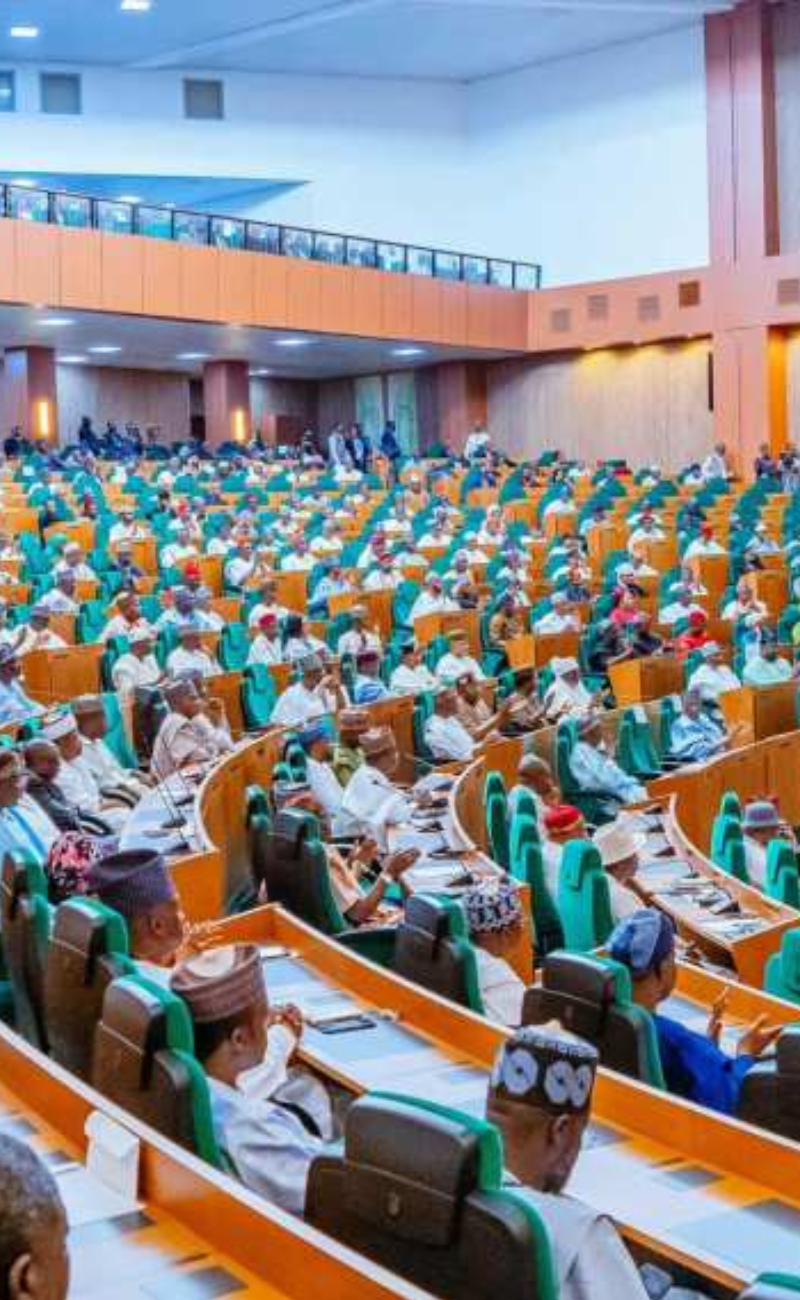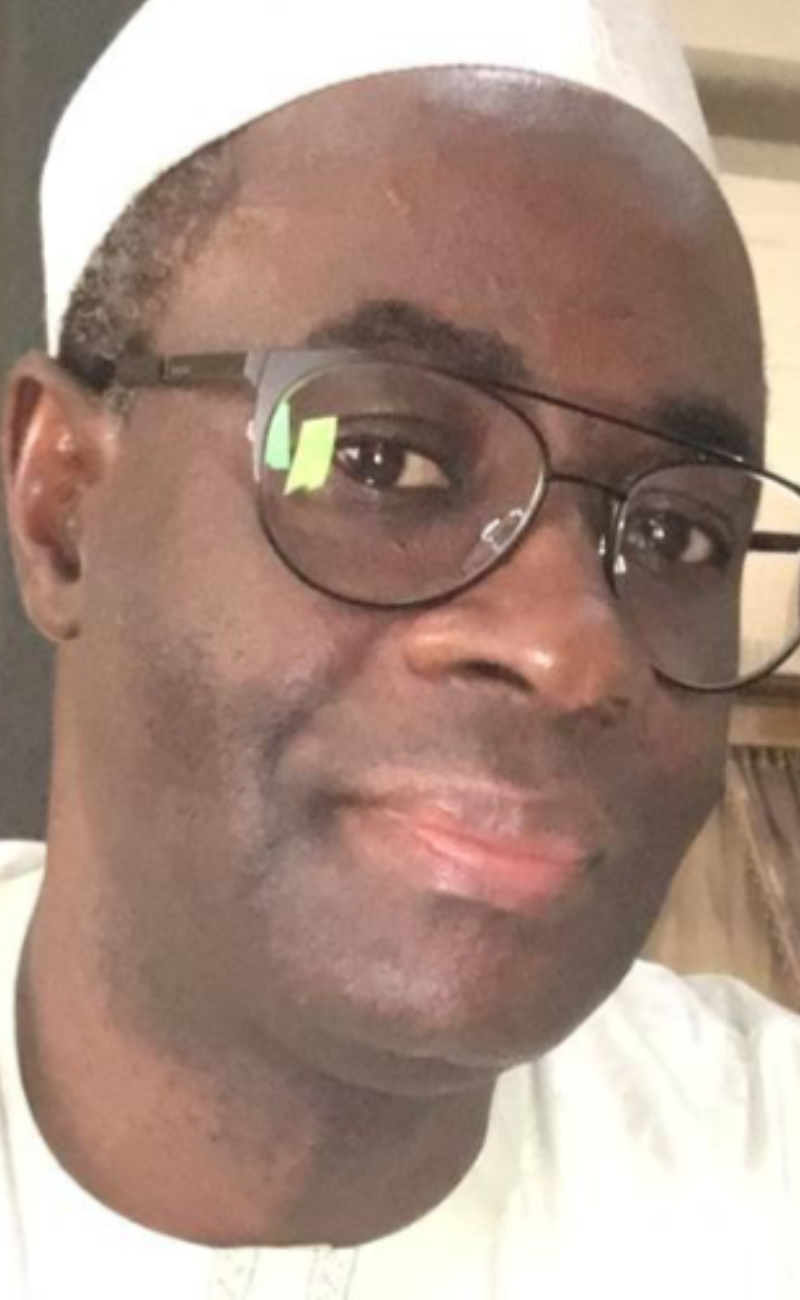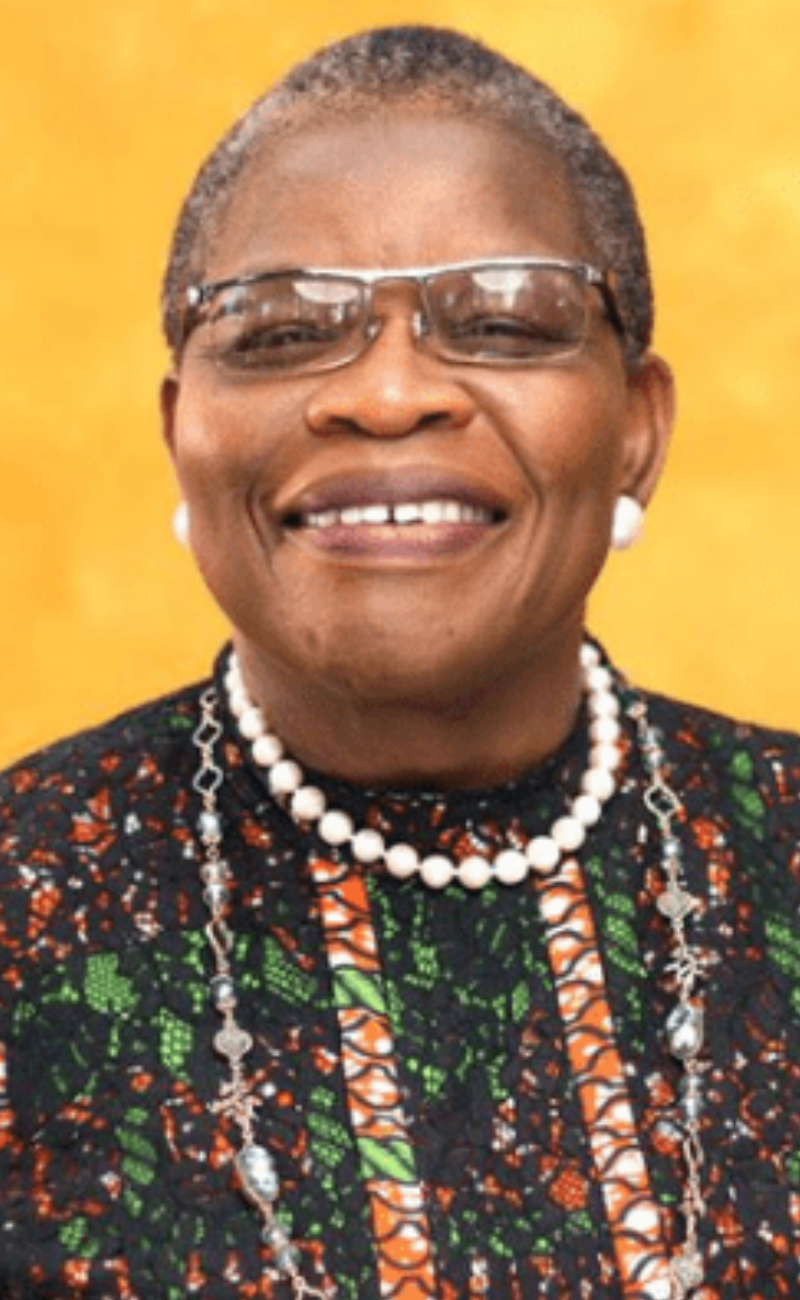This class of leaders has traversed either the red and green chambers of the National Assembly, gaining not just lawmaking experience, but a mastery of Nigeria’s complex political terrain.
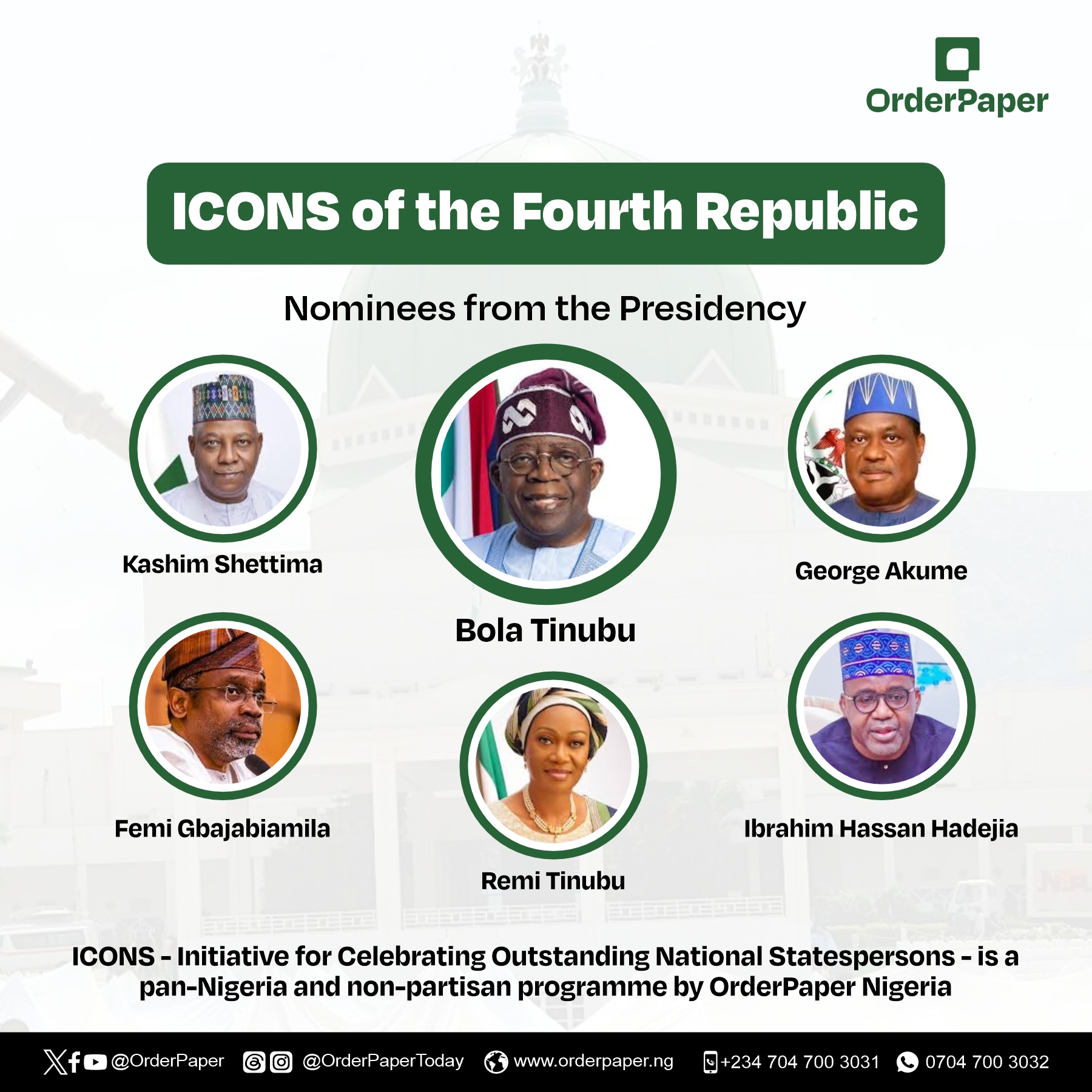
For much of Nigeria’s democratic journey since 1999, executive power has often been portrayed as the pinnacle of political ambition, overshadowing the legislature, which, though constitutionally co-equal, has struggled to match the influence and visibility of governors and presidents.
However, a deeper exploration of Nigeria’s Fourth Republic reveals a significant but underreported trend: the emergence of a political class that seamlessly transitions between legislative chambers and executive offices, acquiring valuable institutional memory and tactical depth in the process.
This evolution has birthed a new hybrid of elite men and women whose paths to executive authority were paved through years of legislative debate, committee negotiations, and parliamentary coalition-building.
Unlike technocrats who rise through bureaucracy or political outsiders who arrive on waves of populism, these leaders come equipped with an intimate understanding of Nigeria’s federal power structures, the psychology of legislators, and the mechanics of policy formulation and oversight. They understand the floor as much as the podium.
In recognition of this emerging dynamic, OrderPaper Nigeria, the country’s leading parliamentary think tank, has launched the ICONS of the Fourth Republic, a data-driven documentation of political actors whose impact spans both the legislative and executive arms of government.
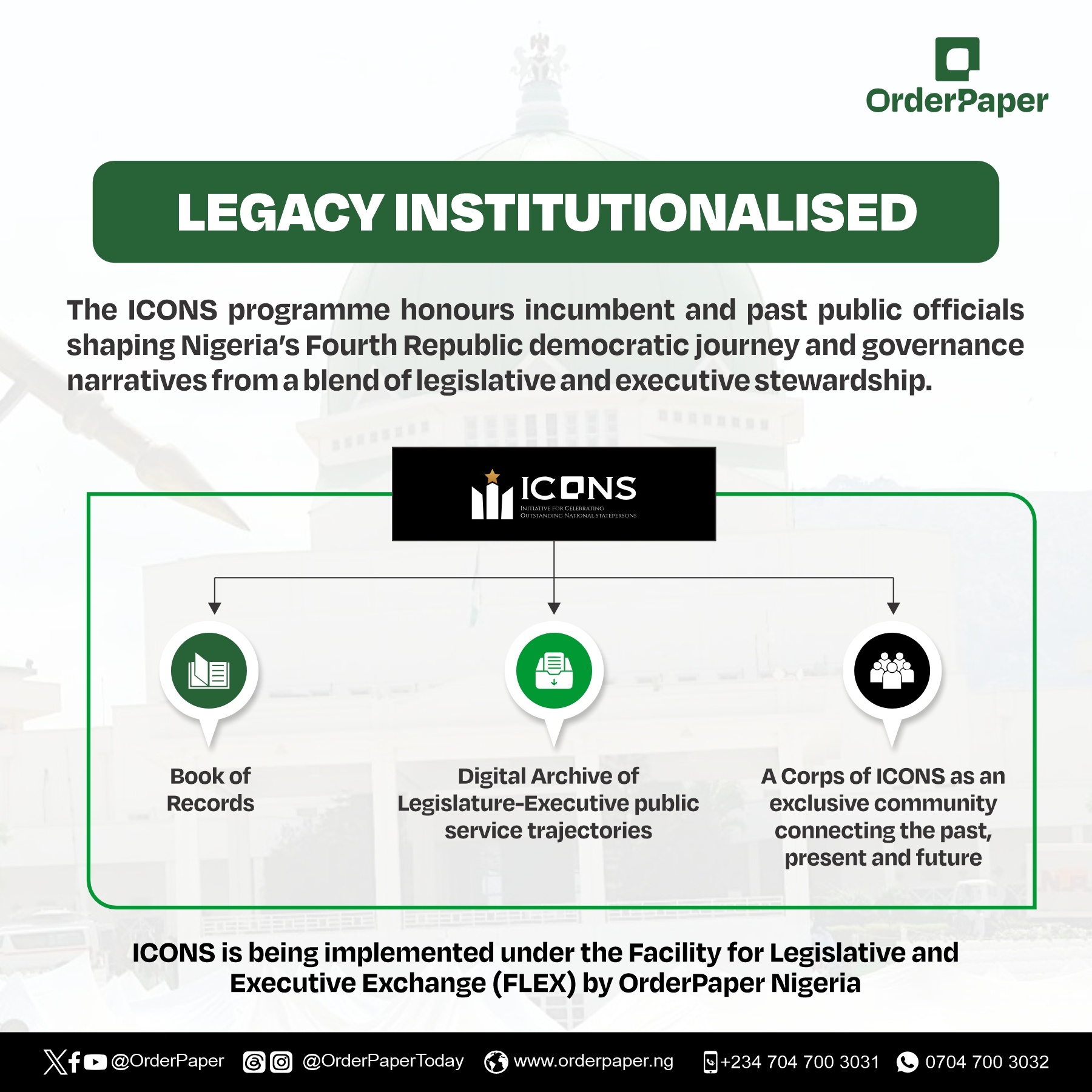
The initiative coincides with the 26th anniversary of Nigeria’s return to democracy in 1999 and aims to chronicle 25 years of governance transition and legacy-building. The project aims to publish an unprecedented Book of Records and a soon-to-be-unveiled digital archive, both of which will be unveiled at a high-profile event in Abuja, the nation’s capital.
OrderPaper is offering Nigeria what has long been missing: an institutional memory of those who have shaped its democratic trajectory through service across both branches of government.
At the core of the ICONS initiative lies a compelling observation: the most strategic actors in today’s presidency are former lawmakers. They include President Bola Ahmed Tinubu, Vice President Kashim Shettima, First Lady Oluremi Tinubu, Chief of Staff to the President Femi Gbajabiamila, and Secretary to the Government of the Federation George Akume.
Collectively, this group possesses a staggering amount of legislative experience spanning decades in the National Assembly and state legislatures and they now occupy the most influential positions in Nigeria’s executive hierarchy.
This cohort did not stumble into power; their journeys represent the growing institutionalisation of what OrderPaper calls the FLEX pathway – the Facility for Legislative and Executive Exchange. This phenomenon, first captured in a 2024 OrderPaper report, explains the increasing cross-pollination between the legislature and executive, particularly under the Tinubu administration, which boasts the highest number of former lawmakers in top executive roles in Nigerian history.
This isn’t just political recycling; it’s a deliberate strategy that leverages the strategic and procedural acumen of legislators in the complex world of executive governance.
As Nigeria contends with mounting fiscal challenges, security threats, and governance fatigue, the value of leaders who understand both how laws are made and how policies are executed becomes more apparent.
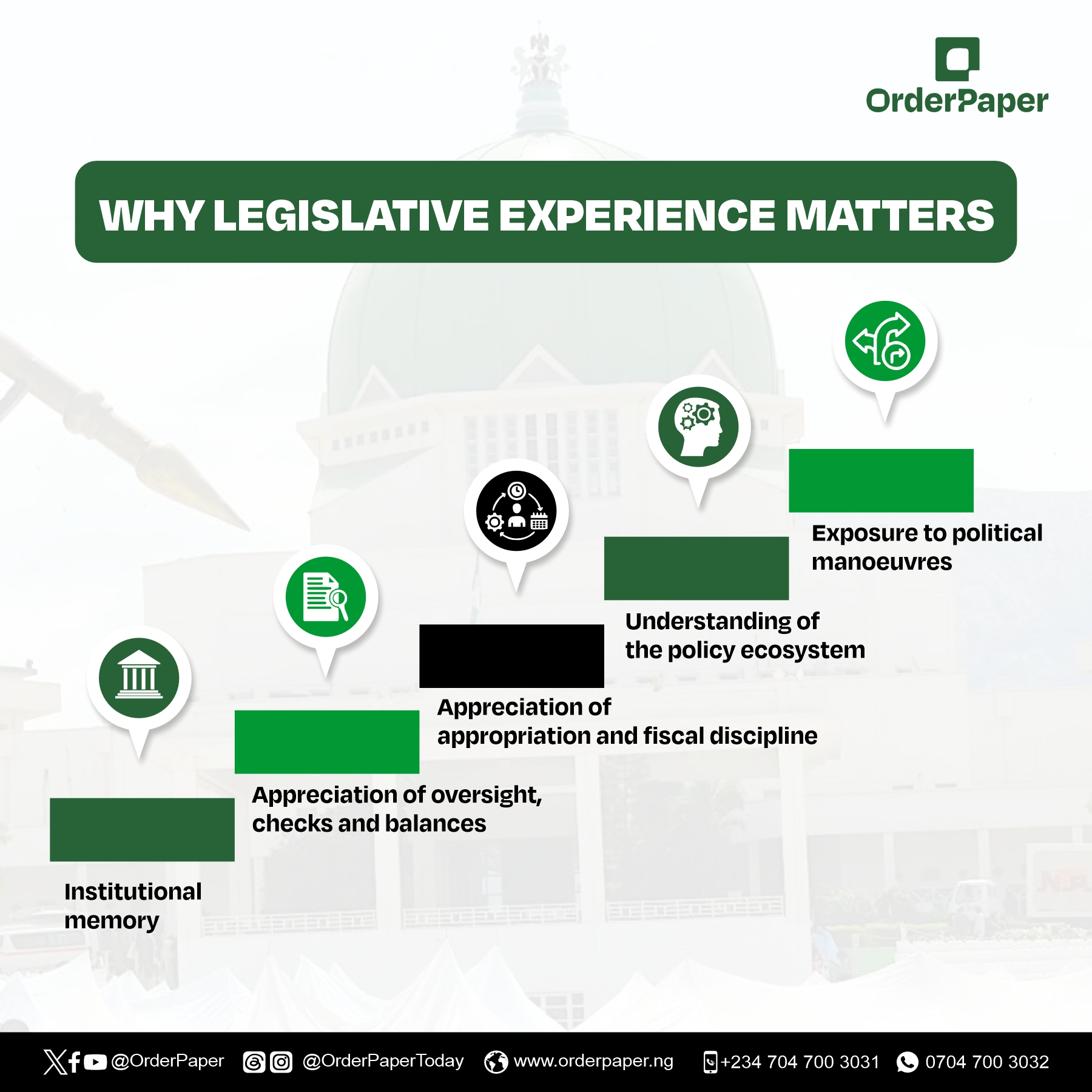
These ICONS are not only executing national policies, they are reshaping the presidency itself into a more legislative-conscious institution, capable of navigating the fragile equilibrium between ambition, consensus, and constitutionality.
Their stories, rooted in legislative beginnings reveal how Nigeria’s presidential power is increasingly shaped by its parliamentary past.
READ ALSO: Glimpse of nominees as OrderPaper unveils ICONS of the 4th Republic project
Bola Ahmed Tinubu
President Bola Ahmed Tinubu’s political evolution is the blueprint of FLEX. He began his public service journey in the short-lived Third Republic as a senator representing Lagos west in 1992. Though that senate lasted barely a year before the military interrupted the democratic process, the experience gave Tinubu a foundational grasp of the interplay between federal legislative structures and national governance.
In 1999, he emerged as Governor of Lagos State under the Alliance for Democracy (AD) and quickly distinguished himself through progressive policies, financial reforms, and institutional innovation.
Behind these successes, however, was the strategic mind of a man who understood how to work the system not just in Lagos but at the national level. This skill would prove crucial as Tinubu expanded his political network across Nigeria, eventually becoming the national leader of the All Progressives Congress (APC) and kingmaker of multiple administrations.
Now as President, Tinubu has leaned heavily on individuals with legislative roots, assembling a team of ministers, aides, and agency heads who, like himself, understand the nuances of law-making, oversight, and legislative diplomacy.
His rapid success in pushing through policy reforms, budget approvals, and sensitive appointments demonstrates not just executive power but a deep institutional familiarity with the National Assembly’s dynamics, forged in his own years in parliament.
Kashim Shettima
Kashim Shettima, Vice President of Nigeria, offers another example of this transition. Known for his intellect and political pragmatism, Shettima served as Governor of Borno State from 2011 to 2019.
But it was his subsequent move to the senate in 2019, representing Borno central, that rounded off his political profile. There, he became one of the few former governors who were not content with ceremonial roles.
Today, Shettima’s one-term senatorial stint is proving instrumental in his role as vice president. He is a key liaison between the presidency and the senate, using his rapport with lawmakers to smoothen policy discussions and manage northern political interests.
Oluremi Tinubu
In a departure from traditional roles assigned to First Ladies in Nigeria, Sen. Oluremi Tinubu brings to the position a robust political career. Between 2011 and 2023, she represented Lagos central in the senate, becoming one of the most vocal female legislators and a staunch advocate for gender equity, family values, and youth empowerment.
During her time in the senate, Remi Tinubu sponsored and co-sponsored bills, led committees, and regularly participated in national debates. Now as first lady, she draws from this experience to push social and gender-based initiatives with uncommon depth.
She speaks the language of policy and understands the power of legislative frameworks in institutionalising her advocacies especially in the areas of women’s rights, education, and national morality.
Femi Gbajabiamila
No single appointment in the Tinubu presidency better exemplifies the FLEX doctrine than that of Femi Gbajabiamila, former Speaker of the House of Representatives. His two-decade career in the house of representatives (2003–2023) saw him rise from committee member to minority leader, majority leader and eventually Speaker, mastering the procedural and political intricacies of Nigeria’s lower chamber.
Today, as Chief of Staff to the President, Gbajabiamila is the operational brain of the presidency. He bridges the technicalities of governance with the political pulse of the legislature. His long-standing relationships with lawmakers, deep understanding of parliamentary psychology, and mastery of legislative timelines have made him a crucial asset in securing executive-legislative harmony in a historically combative political climate.
George Akume
Rounding out the Presidency ICONS is George Akume, a politician whose career spans every major branch of government. From serving as Governor of Benue State (1999–2007) to his impactful tenure as Senate Minority Leader to Minister of Special Duties and Inter-Governmental Affairs and now as Secretary to the Government of the Federation (SGF), Akume has become a living archive of Nigeria’s governance transitions.
His appointment as SGF reflects not just reward for loyalty but a strategic placement of a FLEX veteran at the core of administrative coordination.
As SGF, Akume is responsible for policy harmonisation, inter-ministerial communication, and the transmission of executive decisions to the bureaucracy. His senate experience where processes, documentation, and reporting are key makes him uniquely suited for the job.
He understands the need for policy continuity, legislative compliance, and federal character, all of which are essential in managing Nigeria’s fragile diversity.
Ibrahim Hassan Hadejia
Often working quietly behind the scenes, Sen. Ibrahim Hassan Hadejia, the current Deputy Chief of Staff (Office of the Vice President), is another key figure in the Tinubu-Shettima presidency who emerged from the legislative corridor.
He served as Senator for Jigawa North-East (2019–2023) and was known for his legal acumen, policy clarity, and strategic interventions during his term.
Before entering the senate, Hadejia also served as Deputy Governor of Jigawa State from 2002 to 2007 and from 2015 to 2019, giving him a rare blend of legislative and executive experience at both subnational and national levels.
His work in the Vice President’s office involves coordinating technical teams, policy implementation, and intergovernmental affairs, tasks for which his parliamentary understanding is invaluable.
The story of the Tinubu presidency and the figures who drive it is not simply one of political appointments. It is a redefinition of executive power in Nigeria, one that consciously leans on legislative experience to ensure competence, loyalty, and institutional synergy. In this structure, FLEX is not just a transition, it is a deliberate design.
OrderPaper’s ICONS of the Fourth Republic elevates this story into national consciousness. As Nigeria’s democracy matures, it is imperative to document and understand the journeys of those who have shaped it from multiple institutional perspectives. The Presidency ICONS are not just individuals, they are products of democratic evolution, and their dual backgrounds may well be the key to navigating the nation’s complex governance challenges in the years ahead.


